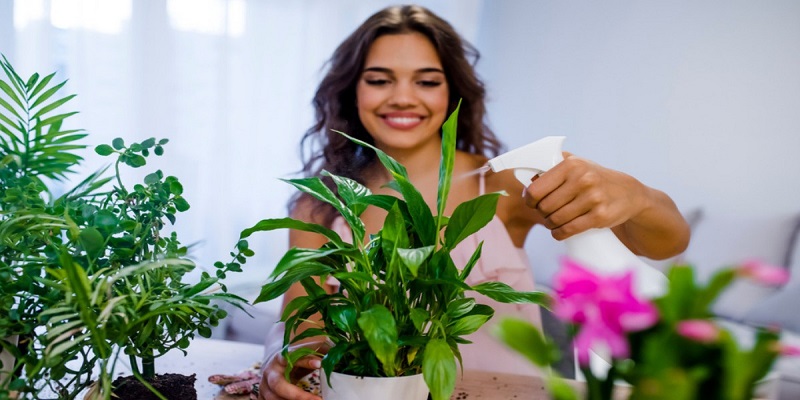Flowering plants, which are delicate and sensitive to the climate, require specific attention and protection in various weather conditions. If you do not take necessary precautions to protect them from the excess heat and water deficit, a particularly harsh summer can be quite harmful. As a result, you should prepare yourself for the summer season ahead of time to provide the most basic protection to your garden plants. Order flowers online and add colors to your summertime garden.
Here are a few pointers on caring for flowering plants in the summer.
Assist the soil in retaining moisture.
Due to increased evaporation, one of the effects of summer heat is that the soil tends to dry up.
Larger plants have deeper roots that absorb water from the soil’s deeper layers.
Most garden plants, such as shrubs and bushes – especially potted plants – require some assistance in keeping the soil moist. One easy solution is to include clay in the soil to maintain enough moisture even during the hottest months of the year.
Another method is to use a lot of mulch when planting a plant since it helps to keep the soil temperature stable and wet. You’ll also apply mulch to the soil, which will include dry leaves, grass, and bits of wood, among other things. To slow down the evaporation process. The addition of vermicompost to the soil improves water conservation.
Watering regularly
It would help if you watered your flowers at least once a day throughout the hot months.
Plants end up giving out a lot of water during this season, and if they aren’t well-watered, they might wither or have stunted development. When estimating the amount of water required to protect flowering plants in your yard, you should consider the flower species and their water requirements. Other considerations include the kind of soil in your garden and, as a result, the quantity of rainfall in your location.
Using the Right Fertilizers
Garden soil degrades over time, leaving plants short in nutrients. You should immediately add adequate fertilizers to your flowers if you see indicators of low soil fertility in your yard.
Water-soluble or liquid fertilizers are the best for flowers. Some fertilizers can burn plants if handled incorrectly. For example, large volumes are utilized or applied at the wrong moment.
To avoid this issue, you should use the fertilizer according to the manufacturer’s instructions.
It’s also 100 percent organic and natural, free of GMOs, and suitable for both humans and dogs.
The importance of investing in shading cannot be overstated.
Invest in a shade cloth for your plants, which can be found simply in internet retailers and horticultural showrooms. The thickness of the material may vary; pick a material that complements your garden’s vegetation. Install it partially over the margins of the Arden flowering plants and the trees.
Pruning and weeding must be done correctly.
Pruning your garden not only makes it appear more attractive and well-kept, but it’s also an important part of caring for your plants over the summer. Pruning undesirable leaves and foliage will increase water retention since there will be less water loss due to transpiration.
Removing weeds from the bottom is also crucial because it ensures that the plants receive adequate nourishment during the summer.
Get Rid of Weeds in Your Garden
Weeds compete with valuable plants for resources and may host pests and illnesses. In order to get the most out of your flowers, get rid of any weeds that have grown in your yard. You may control weeds by simply uprooting them if you’re planting flowers in a small yard or pots and vases. For a larger garden, you’ll want to utilize garden equipment like a hoe and a pick, and you’ll weed every two weeks.
Make Sure Your Plants Get Enough Sun
Plants get their vitality from the sun. Some flowers require several hours of sunshine every day, while others, like indoor plants, require a few hours. This is mostly to prevent sunlight from being blocked. If your plants can’t survive lengthy periods of direct sunshine, you’ll erect a fence around them or place them in pots. Send flowers online to your folks and family and surprise them.
Mulch Is Beneficial To Plants
Mulch, a term used to describe material deposited on the soil surface to keep it cool, reduce weeds, and help hydration, is another summer must-have.
Tree bark, mud, newspaper, grass clippings, shredded leaves, and sawdust are all used to make mulch. Every few days, rotate the mulch and remember to replace it when it decomposes.








